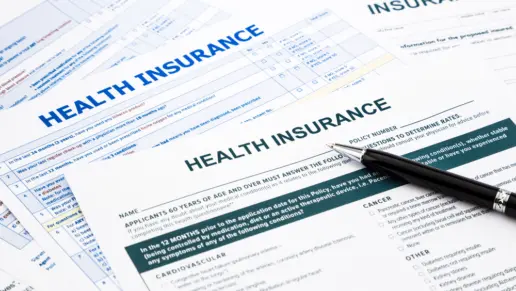The legalities are changing, but the facts are not. Marijuana abuse poses serious health risks and can lead to marijuana addiction.
- 30% of people who use marijuana have a marijuana addiction (called marijuana use disorder).1
- People who begin using marijuana before their 18th birthday are up to seven times more likely to develop marijuana use disorder.1
- Approximately 1 in 10 people who use marijuana will become addicted. (The numbers increase to 1 in 6 for those who start using marijuana before the age of 18.)7
What Should You Know About Marijuana Abuse?
To understand marijuana abuse, it’s important to understand the drug itself and how it affects the mind and body. Because marijuana has evolved over the decades, it is also important to understand how marijuana today is not the same drug that people were smoking in the 1960’s.
Some research suggests that marijuana is a “gateway drug.” This means that using marijuana leads to the use of other, harder drugs. In other words, if someone uses marijuana, they would be more likely to develop an addiction to other substances. As a gateway drug, marijuana is often considered the first step toward cocaine, methamphetamine, or prescription opioids.8
What is Marijuana and How is it Used?
Marijuana comes from the Cannabis plant. It is a psychoactive drug that contains nearly 500 chemicals.7 Its active ingredients are tetrahydrocannabinol (THC) and cannabidiol (CBD).
Marijuana can be smoked like a cigarette or in a pipe if the cannabis plant is dried and ground. Marijuana is also baked into desserts or added to candies, called “edibles.” Some people use marijuana in a resin-like form called “wax” or “shatter” that is vaporized then inhaled. These forms of marijuana produce similar effects, but the effects are felt more quickly or strongly depending on how the drug was ingested and its potency.3
Marijuana Misuse and Addiction
THC is what creates the “high” feeling when using marijuana. This mind-altering compound causes harmful health effects on the body.1 The chemical is similar to one that is produced by the brain, called anandamide.
When a person puts marijuana into their body in any form, the THC activates certain receptors in the brain. Regular marijuana use causes the brain to stop producing its own anandamide chemical and makes the body dependent on THC instead.2 This is how marijuana addiction or dependency occurs.
How Has Marijuana Evolved Over the Years?
Over the past few decades, the potency of marijuana has steadily increased. As a result, the marijuana that people use today has a much higher level of THC than the drug of the past.
- The average THC content in confiscated marijuana samples was nearly 4x higher in 2018 than it was in the early 1990s.1
- A study of cannabis research samples over time revealed that the THC concentration nearly doubled from 2008 to 2017.5
This increase in potency raises additional concerns about marijuana abuse. It’s possible that marijuana could have worse effects on the brain and body than in the past, especially for young people whose brains are still in the process of developing.1
What Are the Effects of Marijuana Use?
Because marijuana is a psychoactive drug, it affects a person’s perceptions. Its effects can be different, depending on the THC concentration, how the drug is consumed, and a person’s unique sensitivities.
Effects of marijuana use include euphoria (feelings of happiness) and a sense of relaxation. However, some people instead experience feelings of anxiety, fear, or panic.5
Other common effects of marijuana include:5
- Heightened sensory perception
- Altered perception of time
- Increased appetite
- Mild hallucinations
- Reduced anxiety
Marijuana abuse in large doses can cause acute psychosis, which involves delusions, hallucinations, and a loss of one’s sense of self.5 When marijuana is consumed through edibles, its effects may be delayed for up to an hour, which can lead people to ingest more THC than they intended.
Signs of Marijuana Addiction
Marijuana abuse has many negative consequences. It can lead to marijuana addiction and many other addiction-related issues. The following signs indicate a problem with marijuana abuse.6
- Using more marijuana than intended
- Trying to quit using marijuana but failing
- Devoting a lot of time to marijuana use
- Craving the drug
- Continuing to use marijuana even when it causes problems in relationships, school, or work
- Using marijuana instead of participating in previously important activities
- Using the drug in high-risk situations
- Developing a tolerance (need to use more and more to feel the same effects)
- Continuing to use marijuana even though it is causing physical problems
- Experiencing withdrawal when marijuana use stops
What Are Some Common Marijuana Withdrawal Symptoms?
Marijuana abuse and marijuana addiction cause the body to become dependent on the drug. When the drug is no longer present in the body, the person experiences withdrawal symptoms. The longer a person uses marijuana or has a marijuana addiction, the more severe withdrawal symptoms will be.
The most common withdrawal symptoms of marijuana include:9
- Anxiety
- Depression
- Loss of appetite
- Anger/aggression
- Agitation/irritability
- Disturbed sleep
- Restlessness
Less common symptoms include:9
- Headaches
- Stomach pain
- Chills
- Sweating
- Physical tension
These symptoms typically begin around 24 hours after stopping marijuana abuse. In most cases, they reach their peak in two to three days, then diminish over the next two to three weeks.9
Featured Facilities Near You
Finding facilities near you…
Resources
- Is marijuana addictive? (n.d.). National Institute on Drug Abuse. NIH.gov
- What is marijuana abuse? (n.d.). WebMD.
- What is marijuana? (n.d.). National Institute on Drug Abuse.
- Addiction. (2022, April 22). CDC.
- What are marijuana’s effects? (n.d.). National Institute on Drug Abuse.
- Addiction. (2022, April 22). CDC.
- Know the risks of marijuana. (n.d.). SAMHSA.
- Is marijuana a gateway drug? (n.d.). National Institute on Drug Abuse.
- Connor, J. P., Stjepanović, D., Budney, A. J., Foll, B. L., & Hall, W. D. (2022). Clinical management of cannabis withdrawal Addiction (Abingdon, England), 117(7). .





